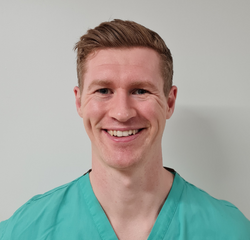
Dr Gavin McClean PhD, Trainee Echocardiographer at Barts Health NHS Trust, shares his thoughts on the importance of research to our favourite diagnostic tool.
Without research, misconceptions such as the ‘morganroth hypothesis’1; that only endurance-trained athletes exhibit 'eccentric' LV hypertrophy, while only resistance-trained athletes exhibit 'concentric' LV hypertrophy would likely still exist owing to inferior spatial resolution. Technological advancements to enable auto-focus or artificial intelligence to enable automated tracings of Doppler signals wouldn’t exist. Advanced imaging techniques such as speckle tracking echocardiography, allowing for increased sensitivity in the detection of cardiotoxicity in chemotherapy patients wouldn’t be available and more. It is the cornerstone of everything we do as evidence-based practitioners.
It is perhaps unsurprising that research active trusts have lower risk-adjusted mortality rate for acute admissions, which persists after adjustments for staffing and other structural factors2. Further, research directs improves to service delivery3 and patient experience4. Thanks to the great efforts of John Gierula, Maria Paton and David Oxborough to name a few, a career in research/clinical academia has been evidenced to direct improvements to patient healthcare, paving the way for more opportunities for healthcare scientists of the present and the future.
Submitting an abstract to BSEcho2022 presents a fantastic opportunity to develop your research skills in study design (be it a retrospective audit, or a prospective investigation using novel techniques), academic writing by preparing your abstract and poster, together with your skills in presenting. Better still, the Investigator of the Year is encouraged to submit a full peer-reviewed article to Echo Research and Practice. These skills are invaluable to a clinical academic or healthcare scientist in critically appraising new research and with it, new technological advancements. Moreover, this represents an opportunity to raise awareness of your work and to establish connections across the British Society of Echocardiography community, whilst serving as great experience for a future Scientific Training Programme equivalence application.
Whether you’re considering submitting an abstract to BSEcho 2022 or interested in attending only, be sure to celebrate the efforts of departments across the country in driving constant improvements to our favourite diagnostic tool. Further, grasp the opportunity to learn what cutting edge developments are ongoing that may help you serve our patients better.
I hope to see you there!
References
- Utomi V, Oxborough D, Ashley E, et al. Predominance of normal left ventricular geometry in the male ‘athlete’s heart’. Heart 2014;100:1264–71. doi:10.1136/heartjnl-2014-305904
- Ozdemir BA, Karthikesalingam A, Sinha S, et al. Research activity and the association with mortality. PLoS One 2015;10:1–15. doi:10.1371/journal.pone.0118253
- Boaz A, Hanney S, Jones T, et al. Does the engagement of clinicians and organisations in research improve healthcare performance: A three-stage review. BMJ Open 2015;5. doi:10.1136/bmjopen-2015-009415
- Jonker L, Fisher SJ, Dagnan D. Patients admitted to more research-active hospitals have more confidence in staff and are better informed about their condition and medication: Results from a retrospective c